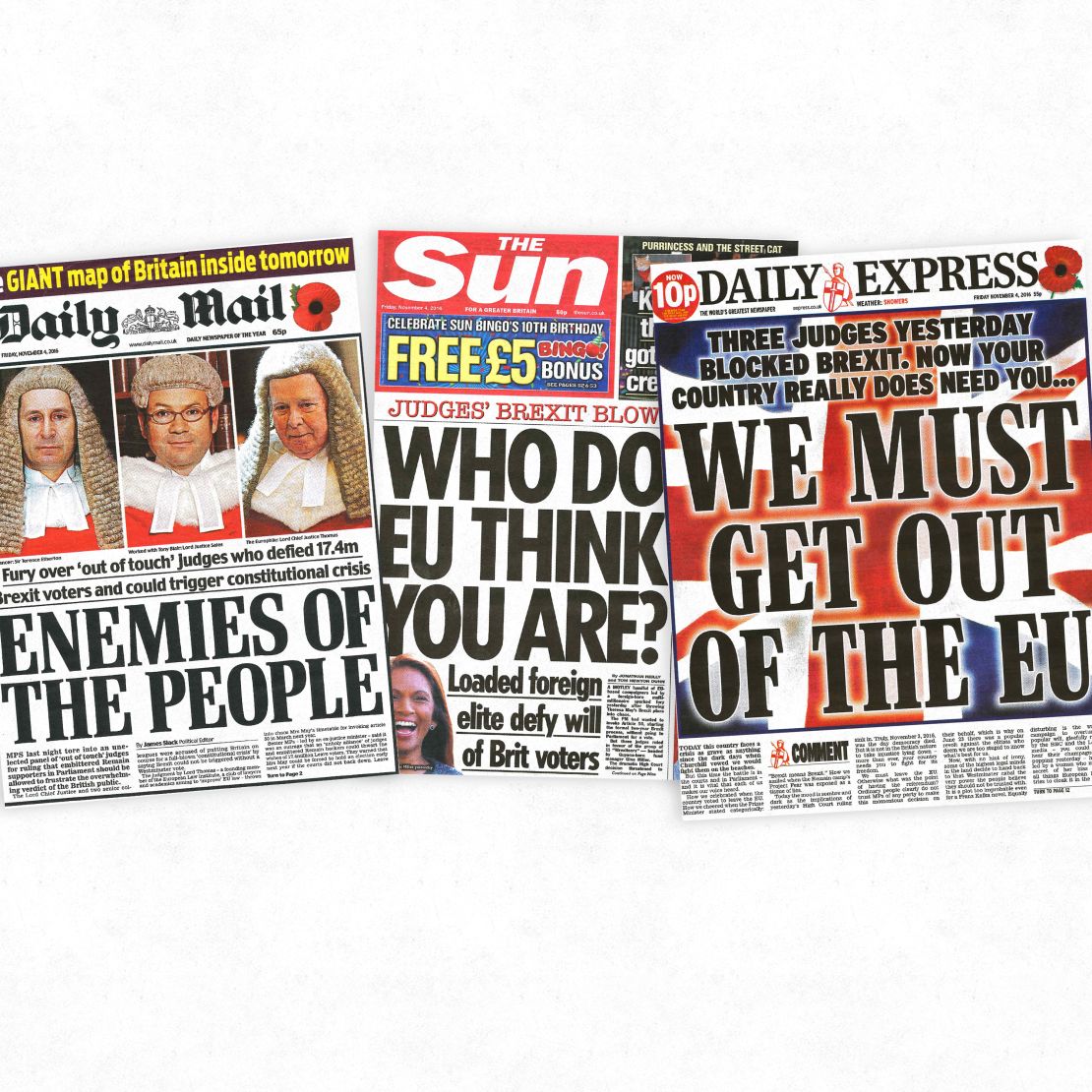Story highlights
Ruling was splashed across British newspapers
But barely got headlines in German media
“Enemies of the People” – that was the headline splashed across Britain’s Daily Mail the morning after Thursday’s Brexit bombshell.
For newspapers in Europe, reaction was more muted.
The UK High Court’s ruling that lawmakers should vote on whether the government begins the formal Brexit process barely made the headlines in German newspapers.
‘Brexit’ named word of the year; ‘Trumpism’ not far behind
Meanwhile, British Prime Minister Theresa May made calls to German Chancellor Angela Merkel, French President Francois Holland and European Union Commission President, Jean-Claude Juncker.
“The Prime Minister’s explained to both Chancellor Merkel and President Juncker that while the Government was disappointed with the judgment, it had strong legal arguments ahead of the case moving to the Supreme Court,” the Prime Minister’s office said in a statement.

“The Prime Minister also confirmed that the Government’s planned timetable for notification of Article 50 remains unchanged.”
Gina Miller: The woman behind the Brexit bombshell
“It was a rather short phone call,” EU Commission Spokesperson Natasha Bertaud told a press briefing.
“The President explicitly stressed that he respects the legal order and constitutional order of the UK.
“This is now a British affair.”
EU leaders, it appeared on Friday, are content to sit back and watch Britain’s legal scramble.
Publicly, at least, no one appeared worried about how or when Britain exits the Union.
In Berlin, Britain’s Foreign Secretary Boris Johnson – a leading Brexit campaigner – also downplayed the High Court’s ruling.
“I wouldn’t really read too much into the legal challenges,” Johnson said.
“The British people voted to leave the European Union. I do not think it will interfere with the timetable for that process.”
When asked what the German preferred outcome would be, Foreign Minister Frank-Walter Steinmeier quipped: “I would have preferred a different outcome to the British referendum.”
EU readies for negotiation
While the British government deals with court challenges, the EU has been assembling a formidable negotiating team for Brexit.
French federalist and chief negotiator Michel Barnier immediately embarked on a tour of all the remaining 27 EU states, diving into the back-room talks necessary to keep the EU united and in line before Article 50 is invoked.
He also swiftly installed Sabine Weyand – a senior German negotiator and seasoned veteran of many EU trade deals – as his deputy.
Rumors quickly spread that Barnier would demand Brexit negotiations in French, not English.
He swiftly batted speculation away by tweeting that he speaks both languages fluently and the official language of talks would be determined at the beginning of negotiations.
But Barnier is not beyond teasing his British counterparts. He recently tweeted a photo from his EU tour in front of the Museum of Broken Relationships.
Limiting Brexit damage
However, behind the seemingly cool facade of EU leaders there is worry and concern about the negative impact of Brexit on the EU.
This week, the German Council of Economic Experts handed Merkel a report that urged the Chancellor to negotiate a deal that limited the damage of Brexit.
It also stated, perhaps hopefully, that “Brexit can still be prevented.”



















